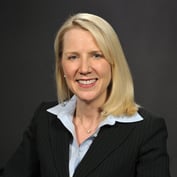In Washington there is one constant: Change. Though change is not always comfortable inside the Beltway, the reactions of those affected are mostly the same, usually involving some level of angst, gnashing of teeth, and, often, a degree of whining.
As financial planners we are comfortable with change. We have learned to be an objective and calming force in our clients’ lives. Given the recent announcement by the Treasury Department of an ambitious reform package for the financial services industry, its support for an investment advisor self-regulatory organization, and the possibility that the Securities and Exchange Commission will agree, financial planners have no choice but to follow their own advice and prepare for change.
With regard to the SRO, apparently Treasury would prefer to see advisors regulated by the Financial Industry Regulatory Authority (FINRA). The logic behind this selection, according to a Treasury official who declined to be identified in a press briefing, was that the distinctions between brokers and advisors are largely irrelevant to consumers, and since FINRA has the most resources, it should regulate both. In other words, consumers are too illiterate to know the difference, and the bigger the regulator, the better.
Did I mention teeth gnashing? History repeats itself, and it may happen again. On May 5, 1986, at the request of the SEC, the NASD Board of Governors (FINRA’s predecessor), approved a resolution stating that it was willing to become the SRO for investment advisors affiliated with NASD-member firms. Guess what? One of the rumors now circulating in Washington is that the SEC may do the same thing again, but will seek to limit FINRA’s oversight to dually registered firms to appease advisor organizations.
Ten years after NASD’s resolution, however, Congress found a different solution, and that was to split oversight of the advisor population between the states and the SEC. It is certainly possible that a similar solution would work today for financial planners.
While Treasury’s long-term plan would create a business conduct regulator for the entire industry, it also suggested that there was a need to charter and license certain types of firms while monitoring overall business conduct. In my opinion, since financial planners do not fit comfortably into the investment advisor box, the planning profession should push for its own charter that establishes appropriate standards of conduct in law for persons who offer financial planning. Indeed, a recent FPA survey of members showed professional regulation as planners to be a high priority. Let FINRA or some other entity monitor; but let financial planners secure a franchise of their own to act as professionals, with statutory peer review, and fiduciary standards that only Congress can change.








 May 01, 2008 at 04:00 AM
May 01, 2008 at 04:00 AM







